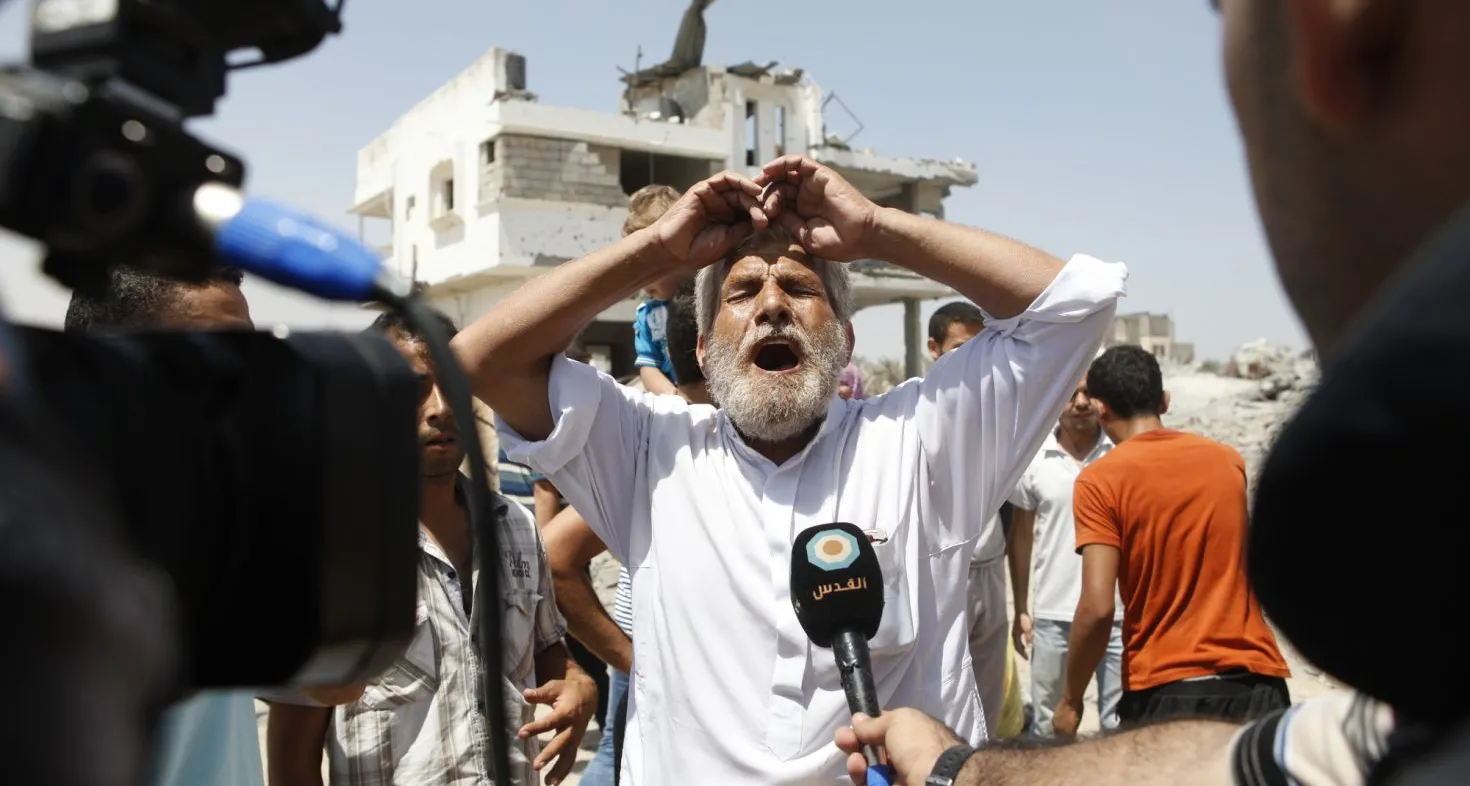
The importance of journalistic ethical standards in times of conflict
Conflict zones are not static. The power dynamics change, new actors start to get involved, and the conflict reaches different stages. To move forward from a conflict requires more than just a ceasefire agreement or a shake of hands. It requires peacebuilding. An important part of developing conditions that can uphold peace is for the population to be informed. This is where journalists come in.
A well functioning, professional media can help understand conflicts and inform people on its origin, but also on safe and unsafe places in the country and the impact of conflict on living conditions. Journalists are necessary to improve trust, governance, and inclusion, all factors that are included in a peacebuilding process. The main thing journalists can do is inform the largest number of people impacted by the conflict about its realities. Numbers, pictures, and most importantly, stories that were hidden and unable to come to the surface are now more important than ever.
Journalists are usually weakened in their position since many (former) conflict parties still rely on suppressing access to information. Usually, a complex web of stringers and foreign partners communicate to report on the conflict. Media can additionally train new journalists to improve their conflict-sensitive reporting and develop pro-peace content.
Ethical standards
In every situation, but especially conflict, it is extremely important for journalists to uphold ethical standards in their work. Within their reporting they should enact conflict sensitivity. There are certain goals to achieve in this case. Namely:
- Professional and citizen journalists are able to avoid self-censorship.
- Professional and citizen journalists avoid partisanship: they recognize harmful stereotypes and narratives that feed the conflict and avoid reinforcing these in the way that they report on the conflict.
- Civil Society Organisations exchange information with media and act on behalf of civilians as a watchdog to hold parties accountable.
- Increased solidarity towards threatened, jailed or tortured colleagues.
Beneficial roles journalists can play in conflict
These are several elements of conflict resolution that good journalism can deliver, automatically, as part of its daily work:
- Channeling communication: News media are often the most important channel of communication between sides in a conflict. Sometimes media are used to broadcast intimidating messages. But other times, the parties speak to each other through the media.
- Educating: Each side needs to know about the other side’s difficulty in moving towards reconciliation. Journalism which explores each side’s particular difficulties can help educate the other side to avoid demands for simplistic and immediate solutions.
- Confidence-building: Lack of trust is a major factor contributing to conflict. The media can reduce suspicion by digging into hot issues and revealing them so there are no secrets to fear. Good journalism can also present news that shows resolution is possible by giving examples from other places and by explaining local efforts at reconciliation.
- Correcting misperceptions: By examining and reporting on the two sides’ misperceptions of each other, the media encourages disputing sides to revise their views and move closer to reducing conflict.
- Making them human: Getting to know the other side, giving them names and faces, is an essential step. Good journalism also does this by putting real people in the story and describing how the issue affects them.
- Identifying underlying interests: In a conflict both sides need to understand the bottom-line interests of the other.
- Emotional outlet: In conflict resolution, there must be outlets for each side to express their grievances or anger. The media can provide important outlets by allowing both sides to speak. Many disputes can be fought out in the media, instead of in the streets, and the conflict can be addressed before it turns violent.
- Framing the conflict: In a conflict, describing the problem in a different way can reduce tension and launch negotiations. Good journalism can help reframe conflicts for the two sides.
- Face-saving, consensus-building: When two parties try to resolve a conflict they must calm the fears of their supporters. By reporting what they say, the media allows leaders in a conflict to conduct face-saving and consensus-building.
- Solution-building: In a conflict, both sides must eventually present specific proposals to respond to grievances. On a daily basis, good reporting does this by asking the disputing parties for their solutions instead of just repeating their rhetoric of grievances.
From Ross Howard: Conflict Sensitive Reporting (IMS)
Case study: the ‘charter of honor’
Free Press Unlimited worked with Syrian partners for two years to establish an ethical charter. Signed by around forty Syrian media outlets, the final 2015 charter is based on the understanding of the role the media plays in fostering accountability and the complex media processes that arise in conflict.
Since the revolution broke out in March 2011, many new Syrian media outlets were established. Recognising the absence of media regulation laws in Syria, Free Press Unlimited worked alongside Syrian journalists to create a binding ethical charter, establishing journalistic principles designed to benefit Syrian society.
The ethical charter's principles are based upon the principles of general journalistic ethics, as enshrined in international charters, declarations, and conventions. Some of the central principles are:
- Accuracy, truthfulness and credibility of information
- Objectivity and honesty
- Commitment to independent media coverage
- Respect for the truth and freedom of expression
- Maintenance of balance, fairness and pluralism
- Opportunities for the public to respond to or correct published material
